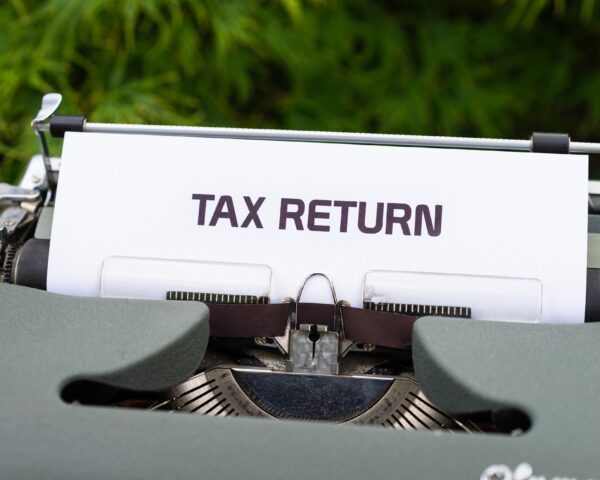So you’ve got some spare cash and you’re about to take your first step towards being a property mogul. You’ll need to think about whether to acquire your buy to let property through a Limited Company, or as an individual.
You can register a special purpose vehicle (SPV), which is a Limited Company specifically for investing in property. You can then buy property through this Company.
There are various accounting and tax implications to consider for both routes – we have outlined the key points below…
Limited Company Reporting Requirements
If you decide to go down the Limited Company route, you will have the reporting requirements below:
- Financial statements
- You will need to prepare and file financial statements with Companies House within 9 months of your year-end date.
- Accounts for your Limited Company can be prepared under FRS 105 with minimal disclosure requirements, you only need to include a Balance Sheet and a few notes in the set filed with Companies House.
- Corporation Tax return
- You will need to prepare and submit a Corporation Tax return (CT600) to HMRC. This will be based off the figures reported in your Financial statements.
- You have 9 months and 1 day after your year end to settle any Corporation tax due to HMRC.
- Annual Confirmation statement
- You are required to submit a confirmation statement annually to Companies House. This confirms the details of the Company, Directors and Shareholders.
Accounting and Tax implications for your Limited Company
If you buy property in your personal name, you will be taxed on the income less any allowable costs in your personal self assessment. This will usually be taxed ‘on top’ of any employment income you have.
This is a key consideration, if you are already doing well at the day job then any property income may be taxed at a higher tax bracket.
Accounting implications
- Any property you acquire via your Limited Company will be recorded as an asset in the Company accounts.
- Any rental income would need to be invoiced to your customer/ tenant from your Limited Company. This will be recorded as sales in your Company profit and loss.
- Any costs associated with the property would be invoiced to your Limited Company, and recognised as a cost in the company profit and loss.
- Allowable property costs would include:
- Interest on mortgage payments
- Maintenance
- Property tax/ Council tax
- Operating expenses as used in the capacity as a landlord
- Check out out blog for more detail on business expenses here
- Any amount paid into the Limited Company by the Director will be classified as a Director’s loan. This can be paid out of the Company tax free at any point.
Tax implications
- Corporation tax – Your Limited Company will pay corporation tax at 19% on it’s taxable profits (these will reconcile to the net profit in the financial statements)
- The rate is set to increase from April 2022. This will increase to a maximum of 25% but this should only impact larger businesses.
- Dividends – If you want to extract profits from the Limited Company, this would need to be either done by running a payroll, or paying dividends to shareholders
- Everyone receives an annual tax free dividend allowance of £2,000.
- Dividends are taxed at the following rates:
- Basic rate – 7.5%
- Higher rate – 32.5%
- Additional rate – 38.1%
- VAT – Residential property letting is exempt from VAT. This means that you will not need to VAT register. No VAT is added to your invoices to tenants, but no VAT is reclaimable on costs.
- Stamp duty – Stamp duty will need to be paid on any purchase via a Limited Company.
Pros and Cons for Limited Company v’s buying personally
Pros
- Mortgage costs – As of April 2020 private landlords are no longer able to deduct mortgage expenses from income to arrive at net property income, instead they receive a tax credit. If a property is owned by a Limited Company, you are allowed to include the mortgage expenses as a business expense – so reducing the Corporation tax bill.
- Tax savings – In the Limited Company the net rental income will be taxed at the Corporation tax rate (currently 19%). If the property was owned personally then the net income would be taxed as income tax on top of your other earnings. If you are currently a higher rate tax payer then this would be taxed at that higher rate via your self assessment.
- Flexibility – You have options with the profits accumulating in the Limited Company. You could choose to do the following:
- Use the profits to further invest in additional properties.
- Make pension contributions – you have an annual allowance of £40,000.
- Pay dividends – you have the flexibility to do this later when you are in a lower tax bracket.
- Buying additional properties – You can retain the profits in the Limited Company (no income tax will be paid until these profits are withdrawn from the Company via a dividend). These retained earnings can fund future acquisitions, or cover future tax liabilities. It also reduces the admin burden by having multiple properties in one SPV.
- Inheritance planning – It’s generally agreed that it’s simpler to pass on property in a Limited Company than it is if it’s held personally.
- The property remains owned by the Company, so it will be protected from any stamp duty and capital gains as no sale would be required.
- The property within the Limited Company will also be better protected from Inheritance tax.
Cons
- Mortgage rates – Interest rates tend to be higher for mortgages available to Limited Company property purchases.
- Capital gains allowance – Companies have no capital gains allowance when they sell a property. An individual selling a property would only need to pay capital gains on any gain above the allowance (currently £12,300).
- Dividends – You will need to pay dividend tax on any profits which you take out of the Company. Dividends are taxed on top of your other employment and other income.
- Reporting requirements – Limited Companies have to file accounts and tax returns, and you have duties as a Director and shareholder.
Can I transfer my property into a Limited Company?
This can be costly. In essence you have to sell the property to your Limited Company. This will trigger:
- Capital gains tax – If the property has increased in value.
- Stamp duty land tax – The Limited Company would need to pay the Stamp duty, and the 3% second home surcharge.
- Conveyancing and legal fees – Would be incurred.
- Mortgage costs – You may be faced with early redemption costs and increased mortgage costs.
These costs would need to be considered, and a decision made as to whether the longer term benefits of having the property in the Limited Company outweighs them.
Conclusion – Our view is it’s probably sensible to go the Limited Company route. There is more reporting and administration to be done, but this is more than offset by the additional flexibility and ongoing tax advantages.









